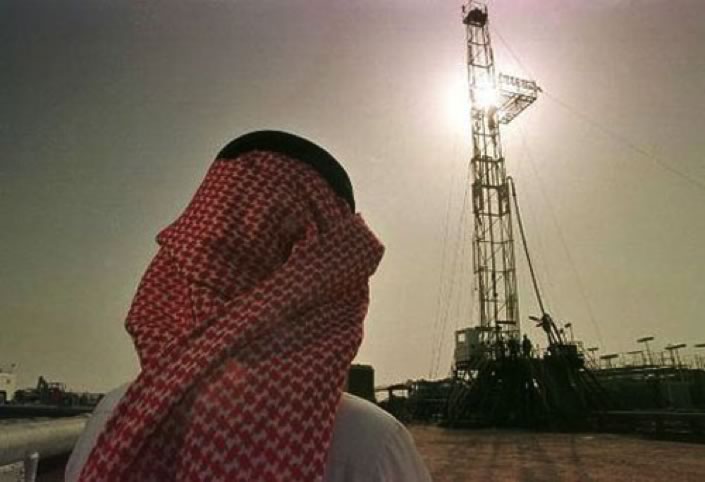Alwaght- Defiant Saudi Arabian regime is increasing oil production just before OPEC- Russia negotiations on capping output.
Member states of Organization of Petroleum Exporting Countries (OPEC) are currently pumping nearly 33.2 million barrels per day. July production set an all-time high for the cartel.
Largely due to global oversupply, crude prices have fallen from a 2014 high of $114 per barrel to the current price of $45-$50.
The world's largest oil producers headed by Russia are scheduled to negotiate an output freeze with OPEC during an informal meeting in Algeria at the end of this September.
Overall, Saudi Arabia's crude-oil supply remained near all-time highs at 10.6 million barrels a day in August, down slightly from 10.65 million in July. And output averaged 10.36 million barrels a day from January to August
Last week, the director for international affairs at the state-run National Iranian Oil Co., Mohsen Ghamsari, said Iran would be ready to decide on capping production only after its output hit pre-sanctions levels, which would amount to just over 4 million barrels a day. Iran currently produces about 3.8 million barrels a day. Early September, Bloomberg quoted Russian President Vladimir Putin as saying he’d like his country and OPEC, producers of half of the world’s oil, to reach a deal to freeze supply. Putin said that oil producers recognize that Iran, which has mostly restored the output halted during three years of trade restrictions, deserves to complete its return to world markets. “Iran is starting from a very low position, connected with the well-known sanctions in relation to this country,” Putin said. “It would be unfair to leave it on this sanctioned level".
Saudi Regime uses Oil as a Weapon against Iran
But the Saudi regime which finds itself at odds with Iran in regional conflicts ranging from Syria, Yemen to Bahrain thus making prospects of a deal to freeze production very dim.
It is quite clear that the Saudis are using the Kingdom's oil as weapon to pressure countries, especially Iran, which opposes Riyadh’s antagonistic policies in the West Asian region. In the face of a global slide in oil prices, the kingdom has refused to cut its production to drive prices back up.
In its efforts to wreck the Iranian economy and keep Tehran's oil exports out of major European markets, Saudi oil giant Aramco announced that it would cut oil prices for Europe. This move made early this year came in preparation for Iran's resumption of oil exports to the region.
Saudi citizens hurt by low oil prices
The Saudi regime intends to hurt Iran through low oil prices, while ignoring the fact that Saudi citizens are bearing the brunt of the fall in prices. Recently, Fitch Ratings said the budget deficit of Saudi Arabia will remain high until at least 2018 in what could be a fresh indication that the economic troubles of the world’s biggest crude oil exporter will still continue to suffer from the impacts of low crude prices.
The ratings agency said the budget deficit of Saudi Arabia is likely to be 11.2 percent and 6.8 percent of GDP respectively this year and next. It is expected to fall to 2.4 percent in 2018.
Meanwhile, the Iranian government says it will manage to earn more from tax receipts than oil revenues for the first time in almost half a century.
US-Saudi led Oil Price War
By working to reduce global oil prices over the last few years, the Saudi regime seems to be coordinating with the US to wage a secret economic war against Russia, Venezuela and Iran, countries which Washington considers as rivals in global politics. In the case of Iran and Russia, Saudi Arabia is also interested in seeing their economies sinking as they are fighting terrorists backed by Riyadh in Syria.
This point of view has been backed by the Venezuelan president Nicolas Maduro who said in late December last year that he thought the United States and Saudi Arabia wanted to drive down oil prices “to harm Russia."
Bolivian President Evo Morales also agreed with Maduro and told journalists, “The reduction in oil prices was provoked by the US as an attack on the economies of Venezuela and Russia. In the face of such economic and political attacks, the nations must be united.” Iranian President Hassan Rouhani has also been quoted as saying, “The main reason for (the oil price plunge) is a political conspiracy by certain countries against the interests of the region and the Islamic world … Iran and people of the region will not forget such … treachery against the interests of the Muslim world."



























